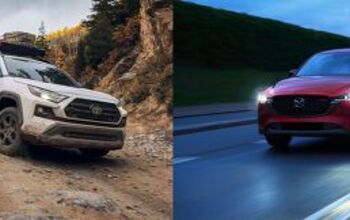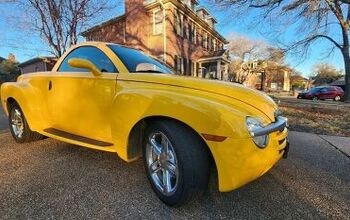Fiat Chrysler Seems to Have Cleared the Pacifica Hybrid Production Hurdle

Conflicting reports claim Fiat Chrysler Automobiles has either restarted, or is poised to restart, production of the Pacifica Hybrid minivan in Windsor, Ontario.
This comes after a tumultuous month for the automaker’s headline-grabbing plug-in minivan. First, a voluntary safety recall saw all Pacifica Hybrids built to date recalled for faulty inverter diodes, following incidents in which several vehicles lost power while underway. The recall then led to the shadowy shutdown of hybrid minivan production.
News of the shutdown irked dealers, some of whom expressed frustration to The Wall Street Journal. Some customers had been left waiting after the first deliveries arrived later than expected, and a prolonged production shutdown would only have led to more dissatisfied customers and more PR problems for FCA.
According to the Windsor Star, while hybrid models stopped appearing on the Pacifica production line several weeks ago, the plant’s union boss claims production might already have restarted. Dino Chiodo, president of Unifor Local 444, told the Star his belief was that hybrid production would resume this week following. Chiodo was unable to confirm this at the time of his call.
However, sources have told Automotive News that hybrids are indeed moving down the Windsor assembly line, having returned at some point last week. The break in Pacifica Hybrid production, the sources claim, was a matter of days, not weeks.
Regardless of whether the hybrids have returned, the shutdown proved a quiet affair. Only the recall officially made it out to the public. The Pacifica Hybrid, which carries a $13,000 price premium over a base model and serves as the company’s green flagship, is capable of 33 miles of all-electric range. Having a flagship dry-docked for emergency repairs doesn’t do a company’s image any favors.
[Image: Fiat Chrysler Automobiles]

More by Steph Willems
Latest Car Reviews
Read moreLatest Product Reviews
Read moreRecent Comments
- SCE to AUX Over the last 15 years and half a dozen vehicles, my Hyundais and Kias have been pretty cheap to maintain and insure - gas, hybrid, and electric.I hate buying tires - whose cost goes by diameter - and I'm dreading the purchase of new 19s for the Santa Fe.I also have an 08 Rabbit in my fleet, which is not cheap to fix.But I do my own wrenching, so that's the biggest factor.
- MaintenanceCosts '19 Chevy Bolt: Next to nothing. A 12v battery and a couple cabin air filters. $400 over five years.'16 Highlander Hybrid, bought in 2019: A new set of brakes at all four corners, a new PCV valve, several oil changes, and two new 12v batteries (to be fair, the second one wasn't the car's fault - I had the misfortune of leaving it for a month with both third-row interior lights stealthily turned on by my kid). Total costs around $2500 over five years. Coming due: tires.'11 BMW 335i, bought in late 2022: A new HID low beam bulb (requiring removal of the front fascia, which I paid to have done), a new set of spark plugs, replacements for several flaking soft-touch parts, and two oil changes. Total costs around $1600 over a year and a half. Coming due: front main seal (slow leak).'95 Acura Legend, bought in 2015: Almost complete steering and suspension overhauls, timing belt and water pump, new rear brakes, new wheels and tires, new radiator, new coolant hoses throughout, new valve cover gaskets, new PS hoses, new EGR valve assembly, new power antenna, professional paint correction, and quite a few oil changes. Total costs around $12k over nine years. Coming due: timing belt (again), front diff seal.
- SCE to AUX Given this choice - I'd take the Honda Civic Sport Hatchback (CVT). I 'built' mine for $28777.To my eye, the Civic beats the Corolla on looks these days.But for the same money, I can get an Elantra N-Line with 7-speed DCT, 201 HP, and good fuel economy, so I'd rather go for that.
- Kwik_Shift_Pro4X '19 Frontier Pro 4X. Next to nothing. All oil changes are on schedule. Got new tires at 60000 miles. Still on original brakes at 79000 miles. Those are due soon. Brakes complete estimate $1000 all in.
- Dr.Nick The cars seem really expensive with tight back seats and Cadillac was on the list of the highest price gouging dealers coming out of COVID. I don’t understand the combination, shouldn’t they be offering deals if they are not selling?































Comments
Join the conversation
So are they swapping out complete controllers, or are they able to just replace the diodes? I imagine they're pretty big.
Seems to me that stopping production and addressing a problem quickly is the right way to go about making cars. This article takes a pretty negative tone and seems to imply something larger is going on. Production of the van does seem to be quite delayed, but better to delay production than to make faulty products, no?